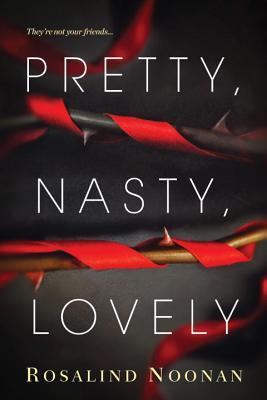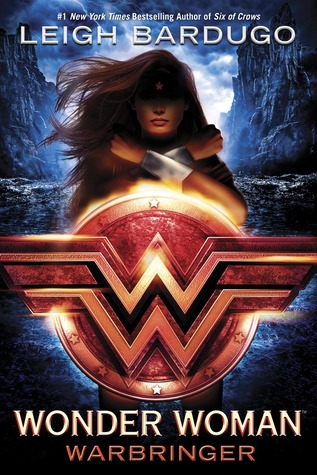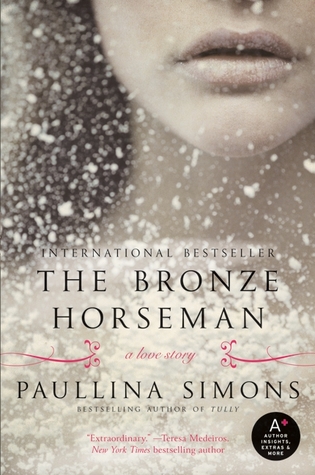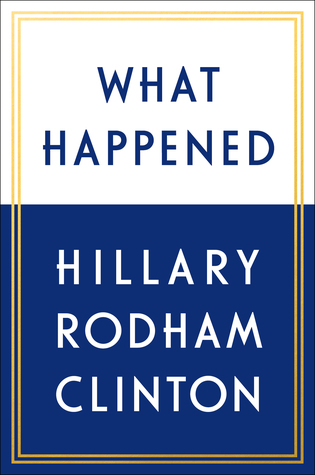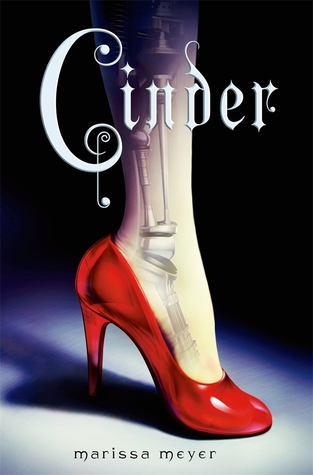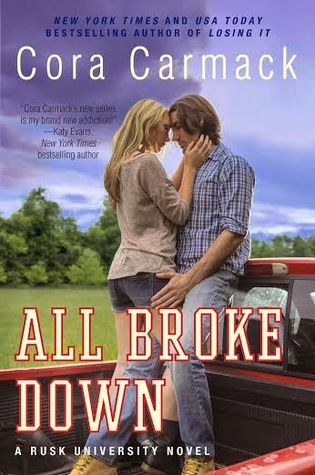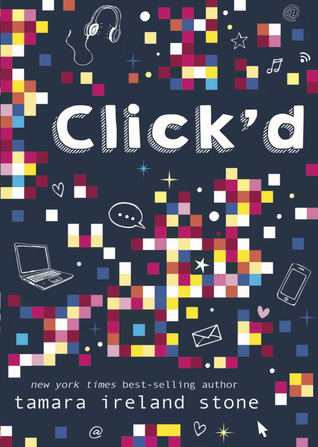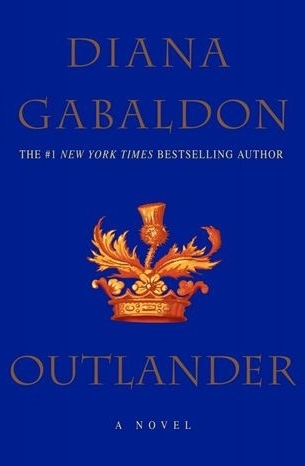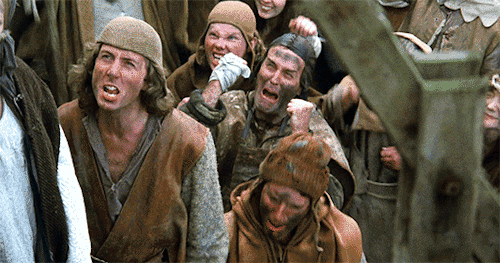My dad used to tell me not to get near a scared animal; that it couldn't understand what your intentions were and since you couldn't exactly
explain to said animal what you were doing, in its overstimulated state it might bite out of fear. That's a lot like what happened in this election. People were afraid: afraid of change, afraid of progression, afraid of foreigners, afraid of the future, afraid of losing their jobs - and so they bit, and they bit down
hard, and logic be damned. The entire country suffered because of some scared, angry people who couldn't be bothered to sort out the facts, and relied on pure emotion, and the sheer, misanthropic pleasure of "shaking it up" while voting in this election.
WHAT HAPPENED is appropriately named. The title is a call-and-answer, all rolled into one. It asks "What happened?" while also explaining exactly what happened,
in her words. I don't expect this book to change people's minds. If you hate Hillary, you'll probably just hate her more after reading this, because you'll convince yourself that she's a) lying or b) the embodiment of the demon-worshiping caricature you've made her out to be in your mind. If you love Hillary, this book will make you love her more, because she's the thoughtful, articulate, compassionate, intelligent, go-getting, invested candidate you wanted - in spades.
I've almost forgotten what an actual president
sounds like, because I've been bombarded with xenophobic, Islamophobic, transphobic, bigoted, juvenile rhetoric for so long.
Before I get into that, though, let me just clear up a few things.
But what about her emails? There was an investigation. She complied fully, and
was duly exonerated. For those of you crying about the remaining 33,000 personal emails, and why she wouldn't want to share them, hmm, why don't you think about some of the emails you've sent to doctors, to relatives, to ex-girlfriends. I'm sure you sent some pretty embarrassing things. Things to which you wouldn't want the general public having access. In fact, since Clinton is a notoriously private person,
yours are probably worse than hers. Also, Clinton's email server was later proven to be secure, whereas Trump White House officials
were tricked by this email prankster into divulging some personal information.
She totally colluded to rig the election, though. Yes,
let's talk about collusion and rigging, shall we?
Hillary gave those speeches to Goldman Sachs people. And Trump's filling his cabinet with them.
The news media was constantly forcing her down our throats. Yes, it's annoying when
the news media is constantly finding new angles to throw unpopular candidates at you, isn't it? Oh wait...
But her emails, though. YES,
LET'S TALK ABOUT EMAILS. LET'S.
I've seen several reviews for this book and many of those reviewers have attempted to be politic and inoffensive about their review, to great success. Well, I'm not going to go that route, and if it costs me a friend or two in the process, that's what my
books-that-made-me-lose-friends shelf is for. I was
not happy with how this election went, and I find it hilarious that members of the Tangerine Tyrant's fan club are
burning their MAGA hats because their fearless leader
dared to compromise with the Democratic party about DACA.
In WHAT HAPPENED, Hillary discusses her election and its catastrophic (or triumphant if you're part of that crowd) results. She describes how crushed she felt, seeing what was supposed to be certain victory being taken from her by a man who seemed incredibly unqualified. She had to wear the suit she planned to travel to DC in as president-elect to her concession speech, and
her first order of business was ensuring that her staff would get paid and they would all have healthcare. Meanwhile, we have a president who
allegedly doesn't pay contractors if they don't do a good job.
Hillary describes the rigors of campaigning, and the close bonds she developed with her staff. She writes about her love for her daughter, who she clearly admires and feels so much pride for, and her close friendship with Huma Abedin, who Hillary refused to fire even when it became clear that her personal scandal might negatively impact her campaign. She writes about her husband, glossing over the scandal that rocked her marriage in the 90s, but she does say that she struggled with the choice to stay or leave and ultimately stayed because she did love him - and then she writes about how moved she was, when before one of her speeches, he said, to everyone, "I married my best friend."
But what really got me was how much she clearly loves the U.S. Her willingness to sit down and listen to everyone - even the people who hate her, protest her, and threaten her - and hear their stories, and try to find a way to make things work really got me. I'm sure her critics will say, in the immortal words of Joe Biden, that that's all a "bunch of malarkey," but I have a pretty good BS detector and it's hard to fake sincerity and passion - at least with the fervor that Ms. Clinton displays here. She seems genuinely saddened to have failed Middle America, and her inability to address their concerns properly. She acknowledges her privilege, and how diligently she has worked to try to understand what it is like, being unable to provide for your children while living paycheck to paycheck. She wanted to bring jobs back to the U.S., was supportive of Black Lives Matter, and wanted to create better relationships between minorities and the police in high-crime areas. She was constantly looking for solutions and successful ways to implement them.
I cried several times while reading this book. Her anger at the roles that racism and sexism played in the election; her frustration at coming so close - twice - and failing each time; her fear for the future, not just for our country but for our allies; and the deep and personal responsibility she feels towards all the people who gave their all to see her get elected and felt that failure right alongside her. In many ways, Hillary reminds me of my own mother, who I love so much. Seeing Hillary fail was like seeing someone I cared deeply about fail. Her failure got me more engaged in politics, so I could learn more and become more informed, and help others become more informed because in our current political climate "fake news" has become synonymous with "news I don't like that I'm going to pretend isn't real because I'm a jerk who likes to live in an alternative facts-ridden landscape."
I've noticed some concern from the Bernie Bros that this book basically blames them for Trump's election. And while
I think that it is at least partly your fault if you either a) lived in a swing state and didn't vote, or b) lived in a swing state and voted for a third party to "stick it to the man," Clinton is much more generous and diplomatic about it (which is why she was able to come so close to winning president-elect, and I will never be running for office). She does suggest that third parties played a role in Trump's victory (though she seems to blame Jill Stein for this more than Sanders), but she also acknowledges Bernie's (admittedly tardy) concession and support of her campaign. She also points out why he was so much more popular with reluctant voters: marketability. His statements were full of panache and sounded good in a microphone. I was Hillary from day one, but even I could admit that Bernie
sounded good. He just didn't seem to have a solid plan. Hillary did have solid plans, many of them, but it's hard to compress intelligent, thoughtful ideas down to a sound bite. And of course, there's also the fact that Hillary is a woman, whereas Bernie is a man, and our country, which is so advanced in some ways, can be rather outmoded when it comes to the role women play in various leadership roles - particularly those of the political or corporate variety.
Someone asked why so many men hated Hillary under the questions for this book, and this is what I responded with:
"
